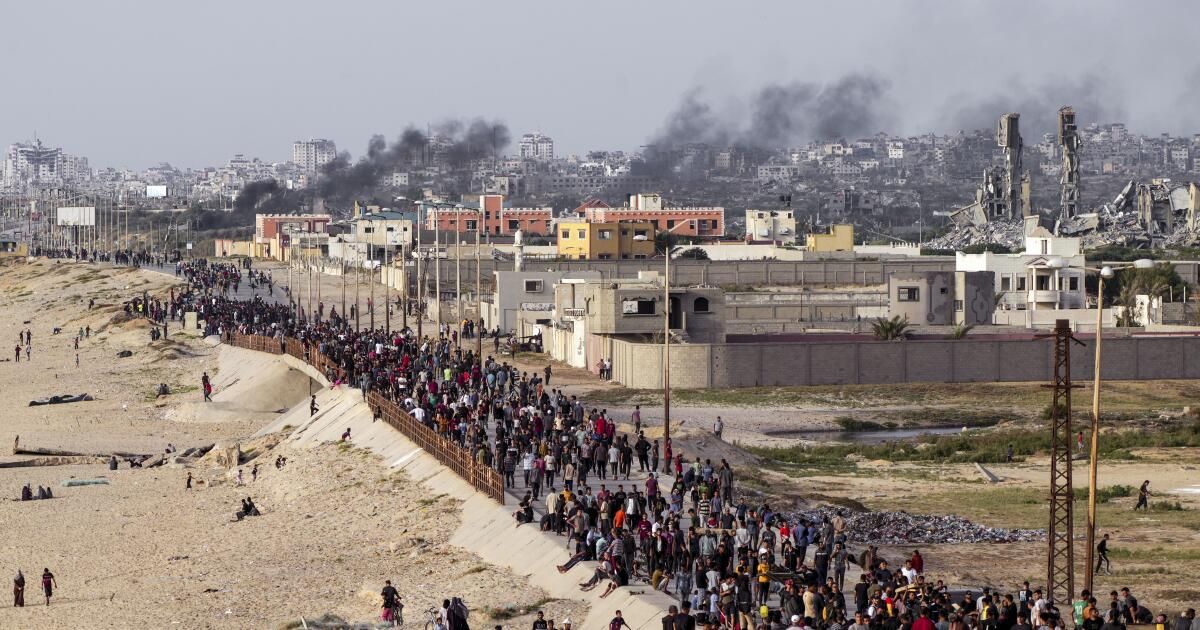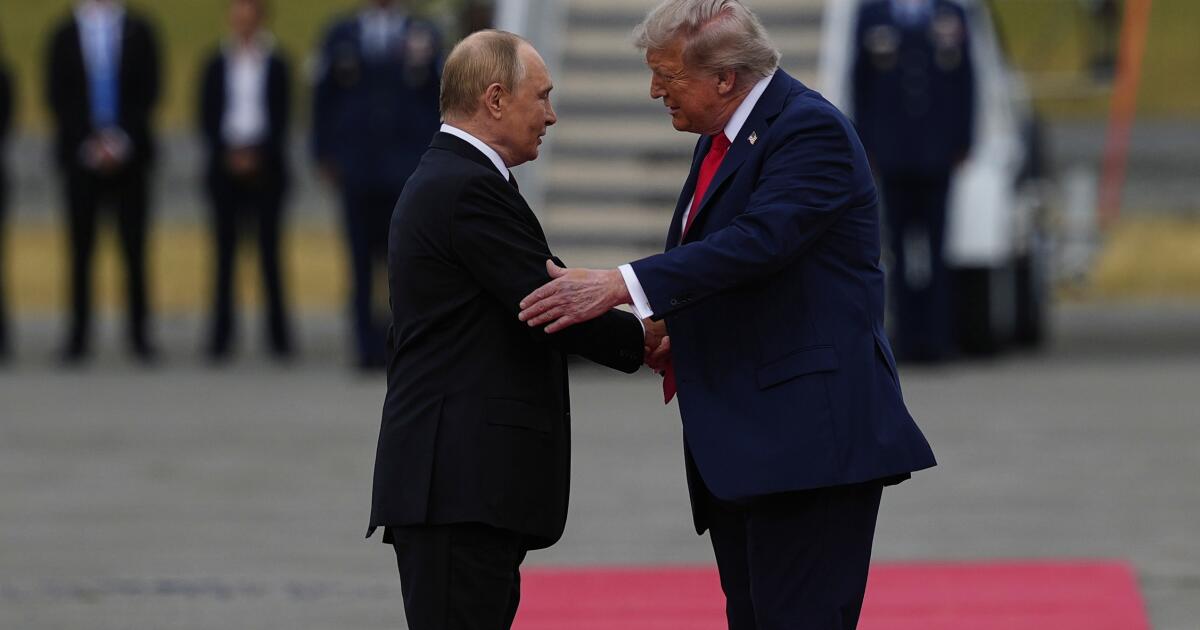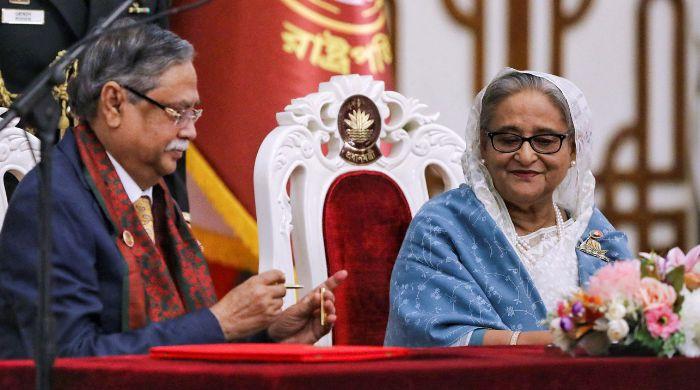Pressure from numerous fronts, domestic and international, is mounting on Israel to end the war in Gaza.
The International Court of Justice, Arab and European leaders, angry Israeli citizens and segments of the Biden administration are calling for an urgent ceasefire as part of an initial step to determine the future of the devastated and impoverished coastal enclave.
But what happens then?
Here is a summary of some of the plans being floated for the endgame in Gaza and their prospects for success.
Israeli annexation or settlement?
Some of Israel's most right-wing politicians are calling for the annexation of parts of the Gaza Strip.
They advocate building Jewish settlements in Gaza that would spill over and divide adjacent Palestinian communities. In other words, Gaza would resemble the West Bank, where about half a million Israeli Jews live in heavily guarded enclaves, using their own roads and farmland in settlements that most of the world considers illegal under international law.
This was the situation in Gaza before 2005.
First, a brief history: Under the United Nations partition plan of 1947, Gaza was to be part of a new Palestinian state that also included the West Bank. Israel accepted the plan and declared statehood in 1948. Arab nations rejected it. Jordan took control of the West Bank. Egypt entered Gaza.
In the 1967 Middle East War, Israel captured Gaza, the West Bank, and East Jerusalem. Israel occupied and began colonizing all three areas.
In 2005, then-hardline Prime Minister Ariel Sharon ordered the withdrawal of Israeli military troops from Gaza and the forced relocation of some 8,500 Jewish settlers. Sharon characterized his move into the world as a concession to the Palestinians, but critics noted that the occupation of Gaza had become particularly difficult and dangerous for Israel. And Sharon withdrew on his own terms, maintaining the Israeli blockade of the strip and controlling all access by land, sea and air.
Resettlement advocates argue that a greater Israeli military and civilian presence is the only way to ensure the safety of Israelis and prevent the Hamas militant group from resurgence.
There are major problems with this plan, one of which would be seen by most of the world as a flagrant violation of international law.
“It's illegal to begin with,” said Diana Buttu, a lawyer and former adviser to the Palestinian Authority.
Critics say the settlements would also be a logistical nightmare, a huge investment of military force to protect settlers.
Palestinians, particularly residents of Gaza, Egypt and the rest of the Arab world, would never accept the return of settlements in Gaza, which could fuel political unrest and violence.
And politically it would be extremely difficult to sell it to the world.
President Biden has said that Gaza should remain in Palestinian hands, a position shared by most of the international community.
Israeli (re)occupation of Gaza?
There is debate over whether Israel ever truly stopped its occupation of Gaza. Some say the 2005 withdrawal effectively handed control to the Palestinians, but others say Israel's continued control over access to the strip essentially turned it into a massive open-air prison.
That said, another oft-discussed postwar option would be for Israel to return to a more traditional, direct military reoccupation of Gaza.
One plan calls for Israeli-controlled “buffer zones” that could surround Gaza's population. Those areas could make it easier for Israel to prevent another attack along the lines of Oct. 7, when militants swept into Israel, killing about 1,200 people and taking about 240 hostages.
Instead of colonizing Palestinian land with Israelis, the zones would be areas empty of no one and heavily guarded by the Israeli army.
The Palestinians reject such a plan as a de facto annexation of their land.
Given that Gaza is only 12 kilometers wide at its widest point from east to west, such zones would significantly reduce what is already a densely populated territory. As a result, this idea would face strong opposition from the international community.
The return of Hamas and the status quo?
Hamas, which almost eight months into the conflict is still fighting Israel and launching attacks, has proposed its own plan to end the war and retain some control over Gaza.
It begins with a permanent ceasefire followed by Israel's withdrawal of all troops, Israel's release of hundreds of Palestinians detained in its prisons, and Hamas's release of all the hostages it still holds from its October 7 attack, which sparked the war.
According to the Hamas proposal, once a “sustainable calm” is maintained, a reconstruction plan would begin along with establishing a realistic path to establishing an independent Palestinian state.
Israel has flatly rejected such proposals. For Israel, any plan that leaves Hamas standing (let alone in power over Gaza) is unacceptable. Israel has repeatedly rejected the idea of Hamas remaining in power and has vowed to destroy the militant group.
The atrocities committed by Hamas also eroded any lingering support from international powers. The United States has declared that there can be no more tolerance for Hamas in parts of the Middle East.
It is unclear whether the Palestinians would support such a plan. Among many Palestinians and other Arabs, Hamas has gained support for inflicting such damage on Israel.
But in recent years, Hamas was not very popular among Palestinians and especially Gazans, who chafed under Hamas' harsh rule. Major regional powers like Egypt do not trust Hamas.
An alternative Palestinian authority?
If not Hamas, is there any other Palestinian group that could intervene?
The most obvious choice would be the Palestinian Authority, which provides some civil administration to Palestinians in the occupied West Bank, although still under the umbrella of the Israeli military.
In the past, the authority helped govern the Gaza Strip until it was ousted by Hamas in 2006.
Biden has floated the idea of a new, reformed Palestinian Authority, which could take over the post-war administration of Gaza.
The reforms would include new, younger leadership. The authority's current president, Mahmoud Abbas, 88, has outlived his mandate by more than a decade and refuses to hold new elections. Biden also talks about financial transparency and best law enforcement practices.
Others have suggested incorporating the Gaza clans into new leadership.
But there is also opposition to this plan.
Israel, which secretly helped create Hamas decades ago as a rival to the Palestinian Authority, will likely be worried about the prospect of Palestinian unity. Israel has long cited chaos and divisions among Palestinians as reasons for not moving forward with creating a Palestinian state. It is highly doubtful that Israel will agree at this point to give the Palestinians any control over land, water or borders in Gaza.
This explains why the authority itself has resisted such proposals in the past. No one wants to be seen as “riding into Gaza on the backs of Israeli tanks,” as a common refrain goes. Palestinians do not want to be seen as guardians – or worse, collaborators – working under Israeli occupation, with little real power.
Finally, the authority may not want to be handed the keys to Gaza after Israel has inflicted such massive destruction on buildings and infrastructure and left the population on the brink of famine.
The Palestinian death toll in Gaza exceeds 36,000, according to Palestinian authorities. Reconstruction after the Israeli attacks will be a monumental task.
Any alternative Palestinian power would also have to confront what remains of Hamas and other Islamist groups.
International authority?
For an international authority to take over – such as a UN peacekeeping force – a major obstacle would be Israel's unwillingness to relinquish control of the security of the Gaza Strip.
That complicates many of the international plans that are on the table.
One would involve an international authority, possibly with Palestinian components, taking charge of Gaza once the war ends, handling food supplies, health care and education while broader security relations are negotiated.
Former Deputy Prime Minister Benny Gantz this month proposed an “American, European, Arab and Palestinian administration” to manage civil affairs in Gaza until a new government can be formed, with Israel maintaining “security control” in the meantime.
The Biden administration has already made contacts with regional allies such as the United Arab Emirates and Morocco regarding the creation of a peacekeeping force. Both Egypt and Jordan have rejected that idea in the past for fear of being seen as interfering in Palestinian self-determination. And the Palestinians have lost faith in the United States as a fair intermediary.
Emirati Foreign Minister Sheikh Abdullah bin Zayed al Nahyan rejected a proposal by Israeli Prime Minister Benjamin Netanyahu that the United Arab Emirates participate in a post-war administration.
“The UAE emphasizes that the Israeli Prime Minister has no legal capacity to take this step, and the UAE refuses to engage in any plan aimed at providing cover for the Israeli presence in the Gaza Strip,” wrote Al Nahyan on the social network. platform
On the other hand, wealthy outside powers like Saudi Arabia might be tempted to help a new Palestinian government if they were assured that Israel was out of the picture and if they received something in return, such as the mutual defense pact that Riyadh has been seeking. from Washington.
Wilkinson reported from Washington and Bulos from Beirut.












